Buy Wine by the Case
192 products

- White Wine
- Chardonnay
- Dry
- 750ml
About the Winery
Domaine Louis Moreau

Winemaker Louis Moreau is the master of the Chablis terroir, where he bottles 100% Chardonnay wines from all four levels of appellation: Petit Chablis, Chablis, Chablis Premier Crus and Chablis Grands Cru.
The Domaine owns parcels in five of the seven Grands Cru climats, and works with many plots throughout the region in a sustainable manner. The most prestigious of its wines is the monopole Chablis Grand Cru 'Clos des Hospices' dans Les Clos AOC 2016, acquired by the Moreau family in 1904.
Louis Moreau, who has been leading the domaine since 1994, produces wines with a unique style. Louis Moreau studied oenology-viticulture at Fresno State University and worked at different Californian wineries before he took over the Domaine's operations in 1994, representing the family's sixth generation of vignerons.
Press Reviews
WineAlign
92 points (2022) - David Lawrason
This is a lovely, bright and quite fulsome Chablis with lifted aromas of yellow apple/pear, lemon blossom and a subtle lactic parmesan note I often find in Chablis. It is medium weight, fresh yet rounded and warming, with a narrow, drying, mineral finish. The length is excellent. Very reflective. Tasted April 2024
92 points (2022) - John Szabo, MS
Here's a very pretty, floral, white and yellow spring flower-inflected Chablis in the classic idiom, ripe but still cool and northern, with elegance and sophistication on offer. This is textbook, stony and succulent stuff, a feat to achieve in this warm vintage. Length and depth are excellent. A grand success for 2022 I'd say, best now-2028 or so. Tasted April 2024.
91 points (2022) - Michael Godel
Always the Moreau Chablis from the “other side,” of a more luxurious profile while the Chablis without lieu-dit addendum rises with greatest freshness. That one is also crisp with textural glide while Domaine de Biéville is a full mouthful, mature, exotic and teasing late harvest honeyed material. Hard to imagine this could make the other seem austere and sharp by comparison but the ripeness and development in this Biéville is off the charts. Drink now and soon with rich or fatty fish preparations elevated with acidity. You will need the gras and the zest to make it all work. Drink 2024-2026. Tasted April 2024.
90 points (2022) - Sara d'Amato
From Biéville's sunny site, made in a warmer vintage, this ripe and mouth-filling style of Chablis is not exactly classic. Notably concentrated, mineral, and brimming with stonefruit, yellow apple, and a toasted leesy character. Ample and satisfying but I wanted more finesse and complexity for the price. Tasted April 2024.
- Sparkling Wine
- Pinot Noir
- Sustainable
- Light Bodied
- 750ml
- 12.5% alc./vol
About the Winery
Lighthall Vineyards
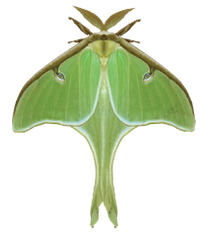 Lighthall Vineyards is a small, proud, low volume and high quality winery located in enchanting Prince Edward County, Ontario, Canada. All their wines are produced in a non-interventionist manner and fuelled by passion as hearty as our vines. They also make cheese, designed to pair with their wines.
Lighthall Vineyards is a small, proud, low volume and high quality winery located in enchanting Prince Edward County, Ontario, Canada. All their wines are produced in a non-interventionist manner and fuelled by passion as hearty as our vines. They also make cheese, designed to pair with their wines.
- Red Wine
- Pinot Noir
- Sustainable
- Dry
- Residual Sugar: 3.00 g/l
- Medium Bodied
- 750ml
- 13.00% alc./vol
About the Winery
Groupe Bellene
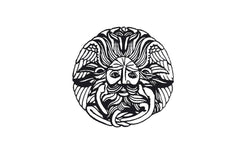
Led by Nicolas Potel in Beaune, Groupe Bellene is composed of the négociant arm Maison Roche de Bellene, the winery arm Domaine de Bellene, and a special back-vintage series under the Collection Bellenum label.
- Maison Roche de Bellene offers a complete range of wines, with an emphasis on individual terroirs from old vines of more than 40 years. All of the growers that Nicolas works with are either organic certified or sustainably farmed.
- Domaine de Bellene represents the wines that are produced and bottled from Nicolas Potel's private vineyard holdings.
- Collection Bellenum is a back vintage series that Nicolas Potel sourced from his friends in the region, offering a magnificent selection of bottled history. The wines have moved only twice in their lives, from the original cellar to Potel's and now to yours!
Nicolas Potel grew up at Volnay's Domaine Pousse d'Or, where his father worked. He trained abroad and returned home in 1996 to build a négociant business and started Maison Nicolas Potel, where he sourced grapes from good parcels, often working with the growers to improve the quality. By 2002, he was making 120 wines from 50 different appellations, and the rest is history!
Press Reviews
WineAlign
90 Points - David Lawrason
This is a fairly pale, light and tender pinot noir that is nicely balanced, typical and complete. The nose captures fairly generous red cherry nicely suffused with light spice, red rose and forest floor. It is light bodied, quite smooth and elegant with slightly crusty tannin and some heat. Very good to excellent length. Best now to 2023.
- White Wine
- Sauvignon Blanc
- Organic
- Dry
- 750ml
About the Winery
Domaine de la Garenne
Rooted in the hills of Verdigny for generations, the Godon-Reverdy family has always worked this land — first in service to the Lords of Verdigny, then the cathedral of Bourges, and finally for themselves. The slopes, trees, and fields have shaped the winery's identity, walked by the parents, grandparents, and great-grandparents before them. It was after World War II that their great-grandfather, Amédée Reverdy, became a winemaker — not by plan, but by providence and a fateful draw of the short straw. Since then, each generation has built on that legacy.
Today, Domaine de la Garenne cultivates 12.5 hectares across 37 carefully managed plots in the Sancerre AOC, a renowned Centre-Loire appellation recognized since 1936 for whites and 1959 for reds and rosés. They grow Sauvignon Blanc and Pinot Noir, producing dry white, red, and rosé wines shaped by the region's oceanic climate and diverse soils. Their vineyards span three key soil types: Caillottes (chalky and vibrant), Clay-siliceous (flinty and mineral), and Terres Blanches (rich clay-limestone offering fruit and length). Embracing organic and biodynamic practices, they are committed to working in harmony with nature, letting each terroir express itself fully in the wines. In a region of 366 passionate winegrowers and 2,999 hectares under vine, the estate remains a proud family story — one of heritage, resilience, and a profound love of the land.
Press Reviews
WineAlign
93 points (2023) - David Lawrason
This is a generous, tidy and textbook Sancerre hitting all the right notes for sauvignon blanc from this famous upper Loire appellation. The nose is just generous enough to transmit classic grapefruit, nettle, mineral and green pear fruit. It is light to medium bodied, delicate yet fairly taut with a touch of warmth (13% abv). The finish is dry and nicely chalky mineral. The length is excellent. Very cohesive. Price is a bit of a bump but still a value proposition. Tasted May 2025.
93 points (2023) - Michael Godel
Straight from the Sancerre handbook with all three essential soils below and behind a most righteous and ultra correct white wine. Predominantly Caillottes calcaires (72 percent) with Terres Blanches argilo-calcaires (20) and Silex (8) for tripartite sauvignon blanc based on treble, like sounds and instruments that emphasize the high-frequency range of Sancerre audio-ness, played to our palates in brightness, clarity and detail. The terroirs are like violins, flutes, and cymbals, the range of flavours a sibilance in vocals. Top shelf soil, sound and vision from the Alliance. Drink 2025-2031. Tasted May 2025.
92 points (2023) - John Szabo, MS
This is a lovely, well-balanced and even-keeled Sancerre with evident ripeness and depth but also a ballast of acids and no shortage of freshness, including a point of bitterness that really draws things together and extends the finish admirably. There's also plenty of stones to keep the terroir purists happy, indeed leading the way over subtle limey fruit with a lick of clover honey, the light, fresh, green kind. A delicious wine in the final analysis, best from 2026. Tasted May 2025.
- Orange Wine
- Albariño
- Sustainable, Vegan-Friendly
- Dry
- 750ml
About the Winery
Peninsula Vinicultores

Península Vinicultores was founded by two Masters of Wine: Andreas Kubach MW, leads production and Sam Harrop MW directs viticulture. Andreas, raised in Brazil and Spain by German parents, and Sam, a native New Zealander, bring a new-wave, international perspective to the Spanish wine landscape. Andreas believes that in the past century, and notably post-industrialization, Spanish producers have prioritized wines of style, focusing on winemaking and aging, rather than wines of place. This creates what he calls a “ceiling of interest” for terroir. Inspired to change this narrative, he is focusing on small, old-vine plots all over Spain that were either formerly abandoned or are at risk of being ripped out for to plant more lucrative cash crops. The wines also champion local, indigenous varieties traditional to their respective regions and best express site.
- Red Wine
- Grenache, Syrah
- Sustainable, Vegan-Friendly
- Dry
- Residual Sugar: 3.00 g/l
- Medium Bodied
- 750ml
- 14.50% alc./vol
About the Winery
Domaine Andre Aubert
At the very heart of the Rhône Valley, at the northerly tip of the Southern Rhône, lie the vineyards of Grignan-Les-Adhémar. The chances are you haven’t heard the name before, few people have, but the wines are worth seeking out. It’s not a new wine region – vines have been planted here since around 500BC but it is a new name (formerly known as Côteaux-du-Tricastin). Domaine André Aubert, has been formed over decades and today comprises of more than 280 hectares spread from north to south of the prestigious Southern Rhone Valley on the appellations Côtes du Rhône, Côtes du Rhône villages, Visan, and Grignan-les-Adhémar.
Press Reviews
James Suckling
90 Points
A medium-bodied red with blackberries, currants, herbs and baking spices on the nose. Fine tannins with a juicy core of berries and peppercorns on the palate and a flavourful finish. Grenache, syrah and mourvedre. Drink now.
- Orange Wine
- Chenin Blanc, Macabeo
- Natural, Vegan-Friendly
- Dry
- Medium Bodied
- 750ml
- 12% alc./vol
About the Winery
Celler Escoda-Sanahuja

Joan Ramón Escoda founded Celler Escoda Sanahuja in 1999 along with his wife Mari Carmen in Conca del Barbera, Catalonia. Since then, they have been disrupting the wine industry both in their home-country and internationally.
Celler Escoda Sanahuja was one of the first wineries that, back in 2005 stopped adding sulphites to their wines. Joan Ramon has always been a radical winemaker and a grass-roots innovator. His wild enthusiasm has been fuel for the natural winemaking scene, and has also led him to, spontaneously, create the 'Brutal' movement popular in natural wine circles. These are highly individual wines reflecting their origins and their innovative winemaker.
- White Wine
- Sauvignon Blanc
- Sustainable
- Dry
- Residual Sugar: 6.00 g/l
- Medium Bodied
- 750ml
- 13.00% alc./vol
About the Winery
Invivo

Invivo's journey began when two Kiwi friends, Rob and Tim, met in a London bar, determined to revolutionize the wine industry by creating a strong brand that defies tradition. Since 2008, Invivo has become a leading producer in New Zealand, winning over 600 medals and expanding operations across several countries. Through customer focus and innovation, including being one of the Southern Hemisphere's largest crowdfunded companies, Invivo has rapidly grown. Rejecting traditional winemaking norms, Invivo brings elegance from the old world to their original range, featuring Sauvignon Blanc, Pinot Gris, Chardonnay, Pinot Noir, and Rosé. Their collaborations with Graham Norton and Sarah Jessica Parker have further elevated their profile, embodying Invivo's vision of bringing people together to create greatness.
Press Reviews
Wine Orbit
94 Points - Sam Kim
It's gorgeously aromatic on the nose, showing kiwifruit, fig, crunchy apple and lime zest characters, followed by a juicy palate that's punchy and tasty. Brilliantly expressed with loads of youthful fruit flavours, making it highly appealing. At its best: now to 2027.
- White Wine
- Chenin Blanc
- Sustainable, Vegan-Friendly
- Dry
- Residual Sugar: 2.00 g/l
- Medium Bodied
- 750ml
- 12.50% alc./vol
About the Winery
Radford Dale
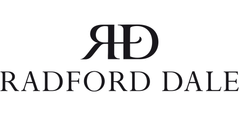
Radford Dale and The Winery of Good Hope are two brands made by the same people, in the same winery. The team behind these wineries has been an industry leader since the 1990s in chemical free farming, and more recently in low and no sulfur winemaking. They are a founding member of PIWOSA (Premium Independent Wineries of South Africa) which sets ethical, environmental and social uplift standards. Recognizing the social inequality present in South Africa Radford Dale has also set up a trust called Land of Hope to help facilitate bright futures for children, focusing heavily on education.
Alex Dale who owns and manages both projects is an Englishman who grew up spending summers in Burgundy, France. He moved there in his late teens to follow a passion for winemaking and also opened a wine bar in Beaune. He lived in Burgundy for many years before moving to South Africa in 1998, starting Radford Dale with Ben Radford, an Australian. The idea was to produce wines using modern techniques and technology with a healthy respect for tradition, something Alex came to understand well while living in Burgundy.
Wines are made with minimal intervention in order to best express each vineyard’s individuality.
Press Reviews
Winemag.co.za
94 Points - Christian Eedes
Grapes from the same Lynedoch vineyard planted in 1969 that supplies Radford Dale's top-end Renaissance bottling. 40% matured in foudre, the rest in a combination of 228-, 300- and 500-litre barrels. Citrus, peach and just the right amount of leesy, waxy complexity on the nose. Great fruit concentration, punchy acidity and pithy, slightly bitter finish. Old-vine Chenin treated with the lightest of hands to great effect
- White Wine
- Grechetto
- Organic
- Dry
- 750ml
About the Winery
Cantina Cenci
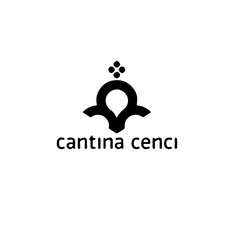
The Cenci Family has been dedicated to viticulture for over four generations, continuing to cultivate the vine with deep respect for the traditions and unique characteristics of the land once owned by the Olivetan monks. In the early 1950s, Mario—an enlightened and forward-thinking agricultural expert, and grandfather of Giovanni—selected clones of Grechetto, Sangiovese, and Malvasia from vines once cultivated by the Olivetan monks and traditionally grown intertwined with mulberry trees. He planted the first vineyards of the estate, and the wines made from those grapes were of such outstanding quality that he secured a long-term contract to supply Grechetto and Sangiovese in traditional flasks to the restaurant of a prestigious hotel in Perugia.
In 2012, following two years of renovation of the farmhouse, the new winery was inaugurated under the guidance of Mario Cenci, architect and brother of Giovanni. Thanks to cutting-edge equipment and winemaking techniques—combined with deep respect for tradition and the passionate leadership of Giovanni Cenci (viticulturist, enologist, food biotechnologist, and sommelier)—Cantina Cenci today produces wines appreciated by a niche audience of expert consumers.
The perfect balance between tradition and innovation has shaped a strong and distinctive brand identity.
- Sparkling Wine
- Sustainable, Vegan-Friendly
- Dry
- Medium Bodied
- 750ml
About the Winery
Leaning Post
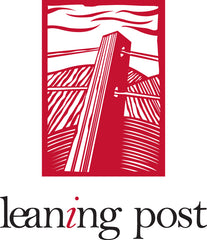
A leaning post is what you find at the beginning of a row of grapes, anchoring the wires that are the frame-work for growing grapevines. It is the beginning of an obsession to translate a time and place into liquid. Leaning Post wines take you to that beginning by finding small, unique plots of land in Niagara and putting them in bottle. Because after stripping away all the fancy buildings and high-tech equipment you are left with a place on this earth that grows wine unlike any other. When you taste that in a glass you just know it. Nadia and Ilya have had to rely on the support of family, friends and financial institutions to make the dream of owning a winery a reality. Leaning Post began as a virtual winery and is so proud to now have the quaint tasting room at 1491 Hwy 8 on their home property in Winona, Ontario.
Ilya and Nadia are the brains and passion behind Leaning Post Wines. It started with a dream to take unique, interesting single vineyard blocks in Niagara and turn them into distinctive, terroir driven wines. Nadia and Ilya first met in their hometown of Winnipeg, MB where their passion for wine and each other was born.
Ilya has been a winemaker in the Niagara Region for the last 17 vintages working at Daniel Lenko Estate Winery, Foreign Affair and now at Leaning Post Wines. Ilya is also a consulting winemaker at the Good Earth Winery. Ilya’s true passion in life is to make world renowned wines from Niagara that really showcase the distinct terroir that Niagara offers.
- Orange Wine
- Chenin Blanc
- Natural, Vegan-Friendly
- Dry
- Medium Bodied
- 750ml
- 13% alc./vol
About the Winery
Celler Escoda-Sanahuja

Joan Ramón Escoda founded Celler Escoda Sanahuja in 1999 along with his wife Mari Carmen in Conca del Barbera, Catalonia. Since then, they have been disrupting the wine industry both in their home-country and internationally.
Celler Escoda Sanahuja was one of the first wineries that, back in 2005 stopped adding sulphites to their wines. Joan Ramon has always been a radical winemaker and a grass-roots innovator. His wild enthusiasm has been fuel for the natural winemaking scene, and has also led him to, spontaneously, create the 'Brutal' movement popular in natural wine circles. These are highly individual wines reflecting their origins and their innovative winemaker.
- Red Wine
- Pinotage
- Sustainable
- Dry
- Residual Sugar: 2.00 g/l
- Medium Bodied
- 750ml
- 12.00% alc./vol
Press Reviews
Platter’s South African Wine Guide 2026
4 Stars
“… very soft tannin, light texture. Yet variety’s juicy, high-toned flavour is eloquently expressed, & 2024 is generous & appealing.”
WineAlign
90 Points - David Lawrason
What great value for such pure and friendly expression of pinotage. Historically most have tried too hard with this grape, but here the whole berry/carbonic fermentation is allowing pure and simple expression of the strawberry/rhubarb, leafy green and some flint. It is medium weight, open-knit, rounded, a touch sour-edged, with that distinct pinotage rusty nail note on the finish. Excellent length and delicious.
- Gamay
- Natural, Sustainable
- Dry
- 750ml
About the Winery
Stéphane Aviron

Stéphane Aviron can be considered a pioneer in his approach to winemaking in Beaujolais, however he would just tell you that he’s simply returning to the traditional practices that have always made fantastic Gamay wines. Sustainable viticulture, extremely old vines and classic Burgundian techniques. He focuses on the Beaujolais village crus, all but forgotten gems of vineyards when the nouveau craze took over, which are the best sites for unique, expressive and terroir driven wines. All of the fruit is sourced from old vines (40+ years), so seeing Vieilles Vignes on the label is a rite of passage, not a privilege. Authenticity and a distinctly Beaujolais style of winemaking is what sets Stéphane apart from the rest.
- Red Wine
- Sustainable
- Dry
- Residual Sugar: 3.00 g/l
- Full Bodied
- 750ml
- 14.50% alc./vol
About the Winery
Sister's Run

Sister’s Run is serious fun. Their talented young winemaker Elena wears steel cap work boots every day of course, but carries a pair of high heels in back of the ute, only for emergencies, like last minute invitations to accept trophies at gala wine show dinners and the like.
Returning from a ‘knees-up’ at midnight, mid vintage, she managed to kick off one high heel and slip back into a boot’ just as the cellar crew cried out, ‘Run Sister Run’; and exactly then their winemaker and label took flight!
The stiletto and boot are Sister’s Run; an independently owned and operated winery with a fierce commitment to making the best wines they can from family vineyards. They don’t take ourselves as seriously as we take our wines, but agree with Elena, all you need to know about wine is the five ‘V’s and remember the best wine is the wine you like.
Press Reviews
James Suckling
92 Points
Dark olives, cracked pepper, sage and underbrush. The palate has a round texture with voluminous, persistent blue fruit character, polished tannins and a well-defined compact finish. Drink or hold.
- Rosé Wine
- Limniona, Mavroudi, Xinomavro
- Sustainable
- Dry
- Medium Bodied
- 750ml
About the Winery
Oenops
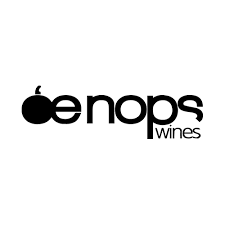
Founded in 2015, Oenops, meaning ‘wine face’, is a pioneering project whose mastermind is the talented winemaker Nikos Karatzas. Following the micro-négociant system, Oenops aims to produce high quality, great value wines. Rather than owning vineyards, the company sources grapes from selected plots across Greece’s best terroirs, with a focus on cool-climate sites and old vines of indigenous varieties.
At the core of the company’s philosophy is the close partnership with ambitious growers who share a same sustainability-focused approach. Oenops mission is to source great fruit and craft wines that fully express its quality and sense of time and place. By using simple methods, led by the profile of the grapes rather than by any winemaking protocols, the company has built a range of authentic, fruit-forward wines that bring out the best of each variety, terroir and style.
The team tastes meticulously and tailors its approach to each plot and variety, based on the core philosophy and ethos. By vinifying each plot and variety separately the team has grown an understanding of the specificity of each vineyard and of the work done each year, in turn allowing for improvement in each vintage.
A repertoire of indigenous grape varieties, such as Malagousia, Assyrtiko, Vidiano, Roditis, Xinomavro, Limniona, and Mavroudi, is expressed through different styles of Greek varietal wines and in labels that have gained widespread recognition, among consumers and critics alike.
What the team at Oenops strives for is, ultimately, to produce tasteful, elegant wines that work as perfect companions to every meal and special occasion.
Press Reviews
Wine Align
90 points (2021) - Michael Godel
Here Rosé is crafted from three local favourites, of xinomavro, limniona and mavroudi. Good trilogy of complimentary aspect and interaction, grape extract, salumi cure, red citrus and salinity all involved, integrated and in check. Definite rose and grapefruit essence, calm and pleasure guaranteed. Very Greek, island and sea. Drink 2022-2024. Tasted March 2022.
- Red Wine
- Sangiovese
- Dry
- 750ml
- 14.50% alc./vol
About the Winery
Cortonesi

“I’m a lucky man who has been given the opportunity to realize my dream and continue my family’s efforts making wine in the land where I was born.” – Tommaso Cortonesi
Tommaso is third-generation winemaker at Cortonesi that owns some of the most prized vineyards in the north and south-east of Montalcino. Favourable geography, rocky soils, and ingenious winemaking all come together to create some of the region's deepest and most elegant Brunello wines.
The Cortonesi family has been making wine since the 1970s. At first, wines were made to be enjoyed by family, friends and neighbours, but then in 1985, Cortonesi had gained enough traction within their community that they began to offer their wines commercially. Today, Cortonesi remains a family business that continues to work according to tradition, while employing modern technologies to the enhance the quality of their production.
Lovers of Sangiovese must experience “La Mannella”, a collection of wines exclusively sourced from Cortonesi's private vine land. This farm covers 56 hectares, eight of which are devoted to the production of some of the world's most coveted and age-worthy Brunello di Montalcino.
Press Reviews
Gardini Notes
97+ Points
From the historic farm, the product of an excellent work between the countryside and the cellar, an emblematic Brunello: raspberry on the nose, touches of nutmeg, then caper fruit and ginger. Slightly salty on the palate, finish with notes of raspberry and sweet spices. Great length.
Wine Align
95 points - Michael Godel
Tomasso Cortonesi's quip is messaged through the mouth of Francesco Ripaccioli: "When you have no space you have money. So you build a cellar and then you have space - but you have no money." Appropriate irony from a northwestern Montalcinese winemaker whose La Mannella history has been one of Tetris - but that will soon change. The quality of his wines from this property arrive at peak form with an outstanding 2019 and going forward new cellar space will help to raise the bar. A bar set by these two Brunello boys who bottle in May because "that's when the Annata are ready." Also allows a rest period for six months in bottle ahead of Benvenuto Brunello and eight before a January release. Tomasso's '19 is fragrant but the kind at dusk on a cool November day in Montalcino, just like an hour ago. The most natural sweetness in a La Mannella sangiovese that has ever been noted and that makes for a Brunello you can find early gratification, but deeper down is the understanding concerning a sangiovese with fortified structure. Purely, expressly La Mannella, fresh and of a Brunello with great purpose. Drink 2027-2038. Tasted November 2023.
92 points - John Szabo, MS
A creamy and ripe, lightly lactic and wood-influenced Brunello in the Cortonesi house style, rarely tight and angular, often approachable and velvety, like this example. It's a sleek and sophisticated example in a forward and enjoyable style - should please widely over the mid term - 2026-2036. Tasted November 2023.
- Red Wine
- Cabernet Sauvignon, Merlot
- Vegan-Friendly
- Dry
- Medium Bodied
- 750ml
- 12.50% alc./vol
About the Winery
Château Haut-Grelot
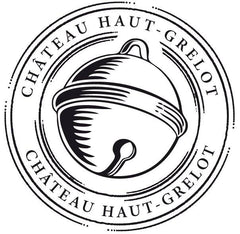
Château Haut Grelot is located in Saint Ciers Sur Gironde, approximately 50 kms north of Bordeaux, on the right bank of the Gironde Estuary. It was established by the Bonneau family in 1922 and now run but the 4th Generation. Today Château Haut-Grelot comprises 58 hectares of vineyards and is run by Céline and Julien, who was recently awarded the title 'Best Young Talent' in Bordeaux.
The vineyards are made up of sandy-gravel on the hillsides bordering the Gironde Estuary and sand-clay-silt on the hillsides further inland. Blaye Côtes de Bordeaux benefits from an ideal microclimate where there is a high level of sunshine and enough rain to guarantee the perfect environment for grape production. As a result the reds are fruity and concentrated and the whites are fresh, vibrant and delicate.
- Red Wine
- Carignan, Grenache
- Sustainable
- Dry
- 750ml
- White Wine
- Grenache Blanc, Picpoul, Viognier
- Organic, Sustainable
- Dry
- Residual Sugar: 0 g/l
- Full Bodied
- 750ml
- 11% alc./vol
- Red Wine
- Carignan
- Sustainable
- Dry
- Full Bodied
- 750ml
- 14.8% alc./vol
About the Winery
Bodegas Puiggròs
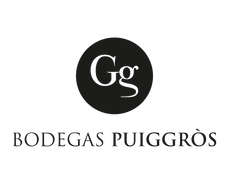
Since 1843, the Puiggros family has been producing wines from their own vines in the Odena region of Catalunya for the family and close friends. Over generations they had come to realize that their vineyards and techniques were something worth sharing with the world. A sincere dedication to the terroir in their zone and the indigenous varieties that grow there, allows them to constantly discover ways to unlock all of the magic that lies within their land.
Starting with conscious and clean farming in the vineyard, they hand-harvest only the best fruit for their production, and ferment each vineyard separately in varying vessels to accentuate what the vines have to show; some in stainless steel, and many in clay amphora of differing sizes. All the while seeing very little sulfur use (if any) until bottling. Puiggros is pushing the quality of northeastern Spain's wines forward, and doing so in a clean and unique way.
Press Reviews
WineAlign
94 points (2021) - David Lawrason
This is a quite lovely, refined and intriguing Priorat - not as 'heavy' and powerful as some but so nicely expressing the carinyena (carignan) grape. Expect lifted aromas of pomegranate/raspberry with florals, fresh herbs, earth and mineral notes all finely integrated. It is medium-full bodied, lively and almost juicy with carignan's natural energy at work. Tannins are dry and dusty but not green. The length is excellent to outstanding. Will age another ten years but approachable now. Tasted May 2025
93 points (2021) - Michael Godel
The work of Bodegas Puiggrós happens in Catalunya and also here in Priorat where the soils are predominantly slate, known locally as “llicorella,” and the significance on the wines, inclusive of this varietal carinyena should not be overlooked. Or taken for granted because the tightly wound, focused and intensity of ultra specific mineral feels are what drive the regional machine. A serious and giving wine from a promising vintage yet here in its infancy and surely structured to be three years away from optimum potential. Drink 2027-2032. Tasted May 2025.
93 points (2021) - John Szabo, MS
This is the first vintage of this wine from Priorat produced by Bodegas Puiggròs, made of pure carinyena (carignan) form the region's steep, slate vineyards, and aged in amphora I'm led to believe, though no details can be found on the winery website. It certainly smells like a terra cotta-aged wine with its wet concrete and clay aromas, alongside lavender and rosemary, wildly resinous; fruit is very much a side show in this exotic and original example. It enters fluidly and sleekly before dusty tannins kick up; acids are balanced. It's quite tight and linear overall despite 15% alcohol declared, a far cry from the broad, base note-heavy style more typical of the region. It's an utterly new paradigm for Priorat, at least in my experience - I'd like to spend more time with it to see how the story unfolds, and watch it over several years in the cellar. I keep coming back for more. Tasted May 2025.
91 points (2021) - Sara d'Amato
This carignan-based Priorat is full-bodied and warm but well-crafted with an undercurrent of minerality and lightly salty freshness. Showing some evolution in colour and fruit with ample natural spice and hints of iron. Drinking very well now with good depth of flavour and significant length. Tasted May 2025.
- Red Wine
- Cabernet Sauvignon, Merlot, Petit Verdot
- Sustainable
- Dry
- Full Bodied
- 750ml
- 13.5% alc./vol
About the Winery
Château Laronde Desormes
Winemaker Claude Gaudin has fashioned some exceptional wines from petits châteaux located along the Garonne River, bordering the Haut-Médoc appellation. His philosophy is simple: the wine is made in the vineyard. Dense plantation naturally reduces the yield per vine, resulting in a more concentrated wine. Traditional vinification and just the right touch of new oak give structure and added dimensions of flavor and complexity.
- Rosé Wine
- Gamay
- Sustainable, Vegan-Friendly
- Dry
- Medium Bodied
- 750ml
- 13% alc./vol
About the Winery
The Farm

“The Farm” is a 10-acre vineyard in Niagara’s Twenty Mile Bench, planted to Pinot Noir. The Neudorf vineyard was originally planted with Pinot Noir in 2000 for Le Clos Jordanne and aptly named “La Petite Colline”, meaning “little hill”, a nod to the gentle slopes that permeate the plot.
The property is rooted in traditions of gathering family & friends, and where Peter and Dora Neudorf call home. The cellar door opens once a year for guests to taste new releases, and enjoy live music and local food.
- White Wine
- Chardonnay
- Sustainable, Vegan-Friendly
- Dry
- Medium Bodied
- 750ml
About the Winery
Domaine Baud Père et Fils

The history of Domaine Baud dates back to 1742, and it wasn't until 1950 when René Baud, the 7th generation, rebuilt the vineyard which had suffered from the phylloxera crisis and two World Wars.
Starting with only 4 hectares, the vineyard progressively expanded to 20 hectares with the help of successive generations. Now, managed by siblings Clémentine and Bastien, the 9th generation, the estate continues to flourish and grow, with a strong commitment to sustainable viticulture and preserving the traditions and style that makes the wines of the Jura so unique and incredible.
The estate achieved the Terra Vitis certification in 2014 for its eco-friendly work and environmental preservation.
- Red Wine
- Pinot Noir
- Sustainable
- Dry
- Residual Sugar: 2.00 g/l
- Medium Bodied
- 750ml
- 13.00% alc./vol
About the Winery
Groupe Bellene

Led by Nicolas Potel in Beaune, Groupe Bellene is composed of the négociant arm Maison Roche de Bellene, the winery arm Domaine de Bellene, and a special back-vintage series under the Collection Bellenum label.
- Maison Roche de Bellene offers a complete range of wines, with an emphasis on individual terroirs from old vines of more than 40 years. All of the growers that Nicolas works with are either organic certified or sustainably farmed.
- Domaine de Bellene represents the wines that are produced and bottled from Nicolas Potel's private vineyard holdings.
- Collection Bellenum is a back vintage series that Nicolas Potel sourced from his friends in the region, offering a magnificent selection of bottled history. The wines have moved only twice in their lives, from the original cellar to Potel's and now to yours!
Nicolas Potel grew up at Volnay's Domaine Pousse d'Or, where his father worked. He trained abroad and returned home in 1996 to build a négociant business and started Maison Nicolas Potel, where he sourced grapes from good parcels, often working with the growers to improve the quality. By 2002, he was making 120 wines from 50 different appellations, and the rest is history!
Press Reviews
Wine Align - John Szabo, MS
93 points
From a high-density 1956 planting of pinot noir, aged in 20% new wood and the rest in used barrels, this is complex and perfumed Saint Romain, especially spicy and stemmy in a good way, adding an impression of freshness and counter-balancing the ripe red berry fruit. The palate is mid-weight, properly firm and structured, with high sapidity and excellent length, and well-integrated, dusty tannins that still need some time to settle in. In the context of the region, I have to say this is an excellent value red Burgundy. I'd cellar for another 2-3 years minimum before enjoying, or hold until the end of the decade without concern. Great complexity and depth. Tasted May 2022.
- Red Wine, White Wine
- Chenin Blanc, Cinsault, Syrah
- Sustainable
- Dry
- 750ml
About the Winery
Pearce Predhomme

Pearce Predhomme is a collaboration of like-minded individuals from around the globe. Founded with a mission to build and import wines from our favourite appellations while offering an unequaled value/quality ratio for the sommeliers & wine buyers in Ontario. This is a project between Toronto Sommelier and entrepreneur Will Predhomme and Ontario wine importer Nicholas Pearce. They have partnered with Radford Dale in South Africa and NorthWest Wine Co. in Oregon to create these special cuvées.
- Sparkling Wine
- Vidal
- Dry
- Light Bodied
- 750ml
- 11.5% alc./vol
About the Winery
Lighthall Vineyards
 Lighthall Vineyards is a small, proud, low volume and high quality winery located in enchanting Prince Edward County, Ontario, Canada. All their wines are produced in a non-interventionist manner and fuelled by passion as hearty as our vines. They also make cheese, designed to pair with their wines.
Lighthall Vineyards is a small, proud, low volume and high quality winery located in enchanting Prince Edward County, Ontario, Canada. All their wines are produced in a non-interventionist manner and fuelled by passion as hearty as our vines. They also make cheese, designed to pair with their wines.




























